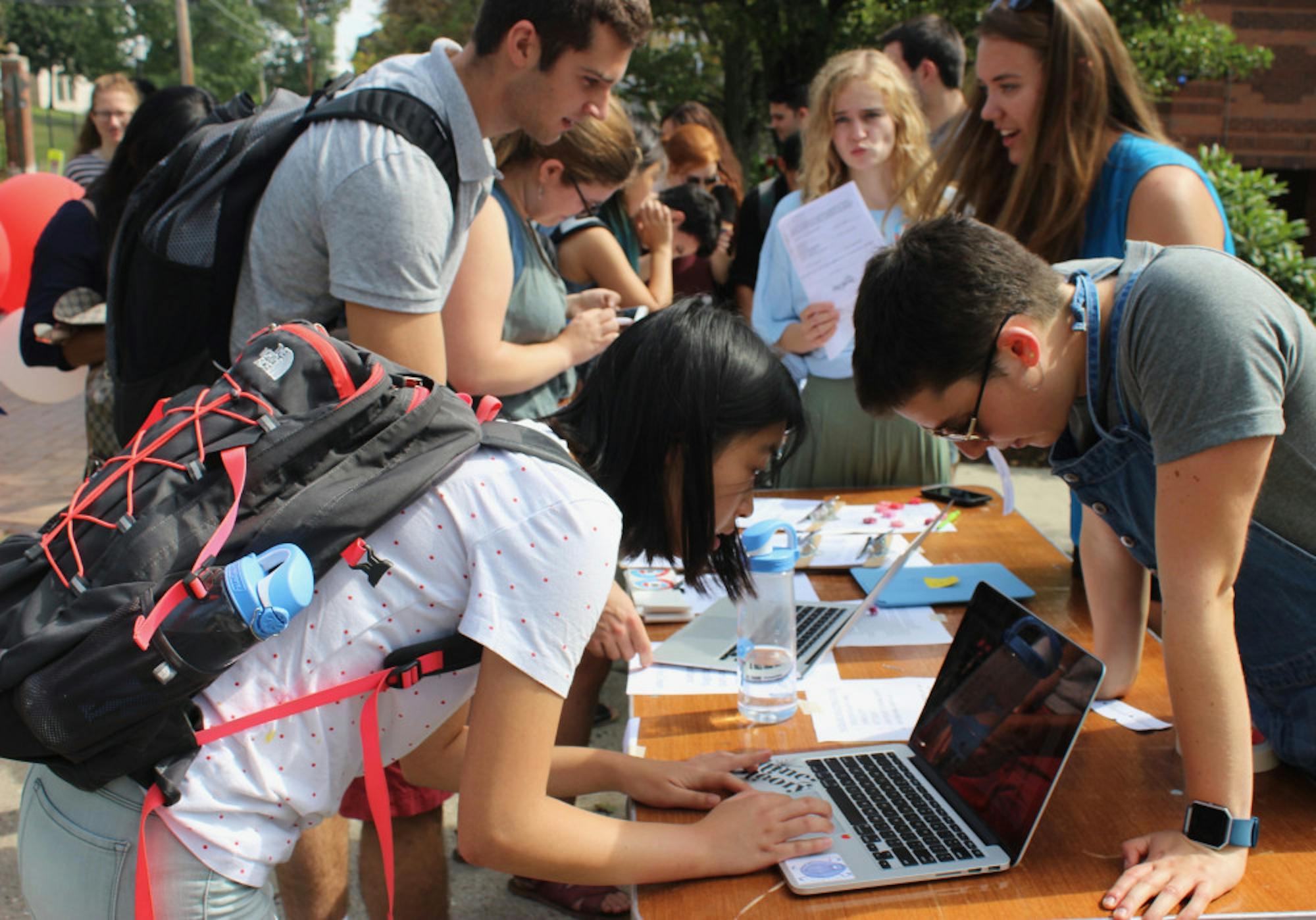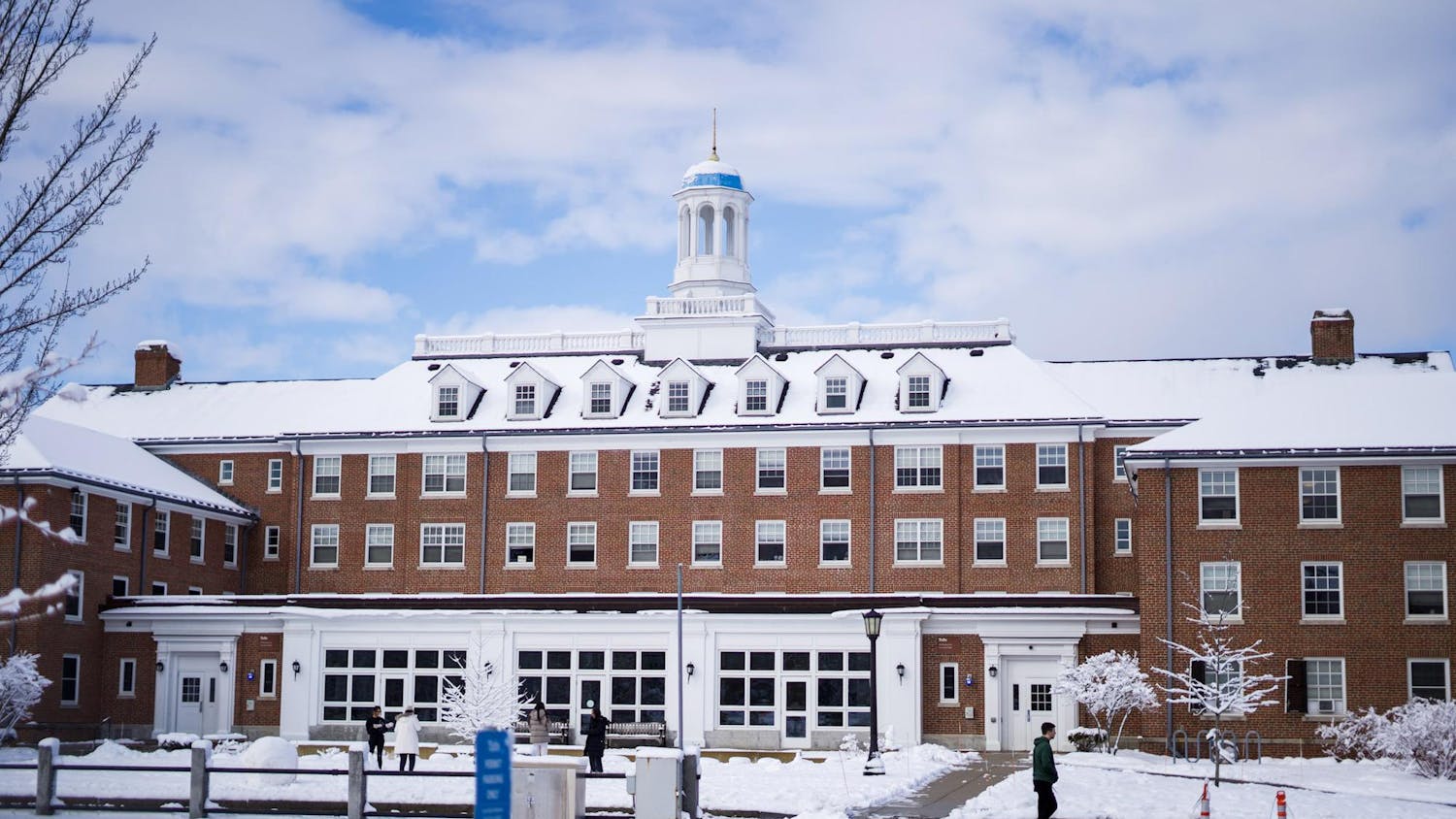From 2012 to 2016, voter turnout for Tufts students in national presidential elections increased by 12 percentage points, from 51.2 percent to 63.2 percent, according to a National Study of Learning, Voting, and Engagement (NSLVE) report released today.
The Tufts-specific data comes from a nationwide study of U.S. college and university student voting, encompassing more than one thousand American higher education institutions and over 9.5 million student voting records of students for each election. The data was collected and analyzed at the Institute for Democracy & Higher Education (IDHE), a division of the Jonathan M. Tisch College of Civic Life at Tufts.
Ishara Casellas Connors, associate director at the IDHE, said that the change in voter turnout at Tufts is significant in comparison to other universities, where the average increase was around three percentage points.
The voting rate for Tufts students in the 18 to 21 age bracket increased by 8.7 percent, in comparison to the national increase of 4.1 percent. Tufts’ overall student voter turnout in 2016 was well above the average among all institutions by almost 13 percentage points.
The report also reveals that 86.1 percent of students registered to vote in 2016, an increase of 2 percent. The actual voting rate of those who were registered was 73.4 percent, a sizable increase from the 60.9 percent who voted in 2012.
Associate Professor of Political Science Eitan Hersh hypothesized that the university's voting rates were significantly higher than the national average due to high frequency of voting among the families in which many students were raised.
“As far as I remember from arecent New York Times article, Tufts is one of the wealthier schools even in the subset of private colleges,” Hersh said. “The population is probably overwhelmingly from families who are regular voters, so these students are getting all the signals that they should be voters.”
Connors explained the process of data collection, which begins with the National Student Clearinghouse acting as an intermediary to de-identify students. The final data does not reflect any personal information.
“What we’re able to do for campuses that choose to engage is to take the enrollment records that the campus is already sending to the National Student Clearinghouse and marry those with the publicly available voter file," Connors said.
Each college and university that participates in the study receives information about its student body's registration rate, the voting rate of students who registered and the overall voting rate among the study participants, according to Connors.
The national report includes information about gender, ethnicity and majors, although the findings are limited because not all schools provided data in those areas.
Connors said NSLVE was born of an interest in learning more about political engagement among students.
“Voting is one objective measure that we have around political engagement, so that was what drove the interest to start the study,” she said.
Jen McAndrew, Tisch College's director of communications, strategy and planning, explained that JumboVote was launched in 2016 to help increase student voter registration and participation.
“What you need to do is both lower the barriers to voting and increase students’ motivation to be engaged and informed and excited about being part of the political process,” McAndrew said.
According to McAndrew, nearly 1,000 students registered to vote through TurboVote, an online system that JumboVote partnered with in 2016. She also noted that Tisch College wants to support and encourage student-led efforts to get their peers to the voting booth.
“No one wants a 40-year-old mom with little kids to tell them what issues they should care about,” McAndrew said.
Marian Woznica (LA '17), student outreach coordinator for Tisch College, wants to help simplify and explain the voting process to students.
“What I’ve noticed is that people don’t want to admit that they don’t know how to vote,” Woznica said. “I don’t think it’s taught really well in high school. It’s just assumed that it’s something a lot of Americans do and know how to do, but it’s not that intuitive.”
Hersh added that faculty members have an inherent obligation to encourage political engagement.
“Classrooms are not usually a place for advocacy, but they are a place to teach core civic values about the importance of participation, how we participate, how to build civic skills," Hersh said. "All these things contribute to someone’s capacity to be a successful participant in civic discourse, so we kind of naturally have that role."
McAndrew said that, regardless of whether students are studying political science or mechanical engineering, they should be well informed of their civic rights.
“Whatever our major, whatever our field of study, we all have a civic life and we’re all going to be informed and active citizens of our communities," McAndrew said.






